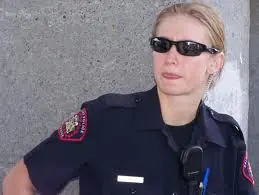Being pulled over by a law enforcement officer is never fun. At a bare minimum it is inconvenient and often costly if the officer writes a ticket. If, however, the officer suspects you of drinking under the influence of drugs or alcohol (DUI/DWI), the stop may be far worse than just an inconvenience. If you drank a glass of wine or beer before heading out on the roadway, for example, you may be worried that the officer will arrest you for DUI/DWI. When a motorist is clearly intoxicated an officer is not required to conduct much of an investigation; however, if the motorist doesn’t appear to be falling down drunk yet does appear to potentially be under the influence of something the officer will look for additional clues before making a decision whether or not to arrest the motorist. Understandably, this leads to the question “ What physical and behavioral clues does an officer look for when she pulls me over? ”
Spotting an extremely intoxicated driver is not difficult. Identifying drivers who are under the influence of drugs or who have consumed alcohol in smaller amounts, however, is a bit more difficult. To help law enforcement officers identify these drivers they are typically given training that tells them to look for certain “clues”. Some of the more common physical and behavioral clues an officer looks for include:
- Clothing – disheveled clothing or clothing that appears to be dirty is often used as an indicator of intoxication.
- Smell – alcohol has a distinctive smell as does marijuana, crack, and some other drugs. Both your clothing and your breath may smell like alcohol or drugs, providing the officer with the confirmation he or she needs to make an arrest. The inside of your vehicle may also reek, particularly if you spilled alcohol or smoked drugs in the vehicle recently.
- Eyes – your eyes often tell a very accurate story of drug or alcohol use. With alcohol use your eyes tend to become red and bloodshot. More importantly, your pupils may dilate or contract, depending on the type of substance in your system.
- Speech – officers listen for slurred speech patterns as well as for noticeably slow or fast speech. In addition, forgetting common words is often a giveaway for drug or alcohol use.
- Movement – an officer will look at how you move when you reach for your registration or identification. Are your movements smooth and fluid or jerky and uncoordinated? Are you able to easily locate what you are looking for or do you stumble around seemingly lost in your own vehicle?
If you have been arrested for DUI/DWI in the State of Nebraska contact the Omaha, Nebraska law office of Petersen Law Office 24 hours a day at 402-513-2180 to get started on your defense.



